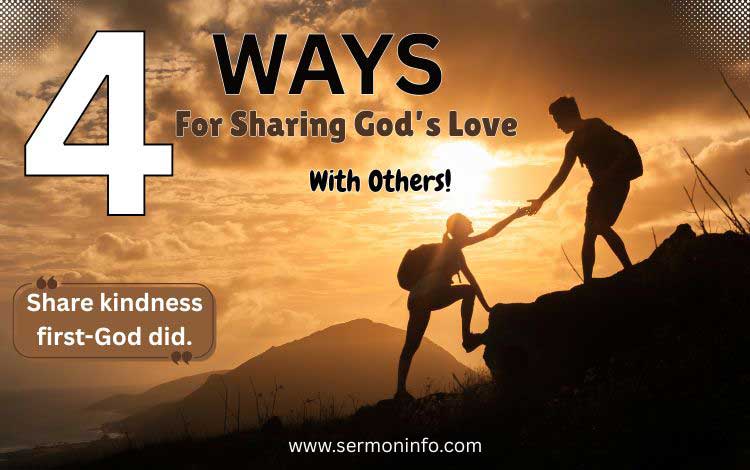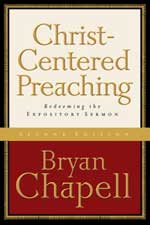When life gets messy, “4 Ways For Sharing God’s Love With Others” will help you respond with grace, courage, sacrifice, and surprise.

4 Ways For Sharing God’s Love With Others
Some days are full of joy, others full of struggle—but in all of it, God’s love remains constant and unshakable.
That’s why I trust Him—He doesn’t just tell us to love, He shows us how, every single day. And the more we experience His love, the more we’re called to share it with others.
So today, I want to walk you through 4 Ways For Sharing God’s Love With Others—real, everyday ways we can love like Jesus.
1. Share with Softness
“And be kind to one another, tenderhearted, forgiving one another, even as God in Christ forgave you.” (Ephesians 4:32)
A. Share with Kindness First
I don’t know about you, but when someone leads with kindness instead of judgment, I pay attention. That’s how God dealt with us. Romans 2:4 says it’s His kindness that leads us to repentance—not His wrath, not His rules. Just His patient, undeserved kindness. That’s the kind of love that softens hearts.
Kindness is powerful because it shows people what God is like. When we choose to be kind—even when it’s inconvenient—we give folks a glimpse of Jesus. Kindness doesn’t cost much, but it plants seeds. Seeds of trust, hope, and maybe even salvation. So, don’t wait for others to earn it. Share kindness first—God did.
B. Share with Forgiveness Freely
Forgiveness isn’t optional for the believer—it’s essential. Ephesians 4:32 says we forgive “just as in Christ, God forgave you.” That’s the standard. God didn’t forgive us because we deserved it; He forgave us because He loves us. When you’ve been touched by that kind of grace, you can’t help but pass it on.
Now, I know forgiveness is hard. Some wounds run deep. But forgiveness doesn’t say what they did was okay—it says God’s grace is greater. When we forgive, we let God be the Judge, and we get to walk free. So don’t hold on. Forgive freely—because you’ve been forgiven fully.
“This material provides some ideas and thoughts for a message on how to share God’s love with others.”
2. Share with Strength
“Woe to you, scribes and Pharisees, hypocrites!…you have neglected the more important matters of the law—justice, mercy and faithfulness” (Matthew 23:23)
A. Share with Truth Always
Jesus never sugarcoated the truth, and neither should we. In Matthew 23, He speaks strong words—not out of hate, but out of holy love. Sometimes, loving people well means telling them what they need to hear, not what they want to hear. Truth and love aren’t enemies; they walk hand-in-hand in the life of Jesus.
We can’t help anyone by ignoring sin or truth. We speak the truth because we care about their soul, not just their feelings. So yes, speak with love, but speak clearly. Truth doesn’t push people away—it lights the way home. So share truth always—with love as your tone, and Jesus as your example.
B. Share with Justice Boldly
God’s love cares deeply about what’s right. In Micah 6:8, we’re told to “do justice, love mercy, and walk humbly.” That’s not a suggestion—it’s a calling. Jesus didn’t just preach in synagogues; He stood up for the oppressed, challenged the powerful, and defended the weak. That’s love with a backbone.
When you speak up for someone being mistreated, or take a stand when it’s costly—that’s love in action. Don’t stay silent when God calls you to speak. Justice is part of love’s DNA. So share justice boldly—because God’s love never turns a blind eye.
3. Share with Sacrifice
“By this we know love, because He laid down His life for us. And we also ought to lay down our lives for the brethren.” (1 John 3:16)
A. Share with Action Daily
Talk is cheap. Real love moves. 1 John 3:18 tells us, “let us not love with words… but with actions and in truth.” Jesus didn’t just feel compassion—He fed, healed, served, and died. If we’re going to love like Him, we’ve got to show up when it counts, even in the small stuff.
That might look like cooking a meal, running an errand, or just being present when someone’s hurting. Loving with action means we don’t just pray—we participate. Don’t wait for big moments. Love with action daily—because people remember what we do, not just what we say.
B. Share with Cost Willingly
Love will cost you something—your time, energy, comfort, or pride. But that’s how Jesus loved. He didn’t give leftovers; He gave His life. 2 Corinthians 8:9 reminds us, He became poor so we could become rich. That’s the beauty of sacrificial love—it gives until it changes lives.
Maybe it costs you your Saturday. Maybe it stretches your budget. But let me tell you—what you give in love is never wasted. Sacrifice isn’t loss when it’s given to God. So share with cost willingly—because that’s how He loved you.
4. Share with Shock
“But I tell you not to resist an evil person. But whoever slaps you on your right cheek, turn the other to him also. If anyone wants to sue you and take away your tunic, let him have your cloak also. And whoever compels you to go one mile, go with him two.” (Matthew 5:39-41)
A. Share with Grace Unexpectedly
Jesus said crazy things—turn the other cheek, go the extra mile. That’s not weakness; that’s holy resistance. Grace always surprises. It throws people off because it’s not what they expect. And when you respond to rudeness with kindness, people wonder, “What’s different about you?” That’s a God moment waiting to happen.
That kind of grace shows up in traffic, in tense conversations, and at family dinners. Don’t respond like the world does. Let your reaction reflect your Redeemer. So share grace unexpectedly—because grace is shocking, and that’s what makes it powerful.
B. Share with Generosity Excessively
Jesus said, “If someone forces you to go one mile, go two.” That second mile? That’s where love shines. It’s where we do more than what’s expected, not to impress, but to bless. Radical generosity opens hearts and quiets skepticism. It’s unexpected, unselfish, and unforgettable.
Give more time. Offer more help. Bless beyond what’s required. That’s when people say, “That had to be God.” Generosity tells the gospel without a sermon. So share generously—because love that shocks is love that speaks.
Conclusion
So let’s bring it home. Sharing God’s love isn’t just a Sunday idea—it’s our everyday calling. And it starts with trust.
I remember a time I felt overlooked, but someone showed me unexpected grace. That small act pointed me straight to Jesus.
Whether it’s kindness, truth, sacrifice, or shockingly generous love—God goes first, and we follow.
So this week, take a step. Trust God. Love boldly. Someone’s waiting to see Jesus through you. Let’s go live it out together and let’s not forget the 4 ways for sharing God’s love with others.
Source Material
Believer’s Bible Commentary by William MacDonald
The MacArthur Bible Commentary by John MacArthur
Must Have Sermon Preparation Books
The Importance For Application

QUOTE by Bryan Chapell: People have the right to ask, “Why did you tell me that? What am I supposed to do with that information? All right, I understand what you think – so what?” The healthiest preaching does not assume listerers will automatically see how to apply God’s truths to their lives; it supplies the application people need.
If even the preacher cannot tell (or has not bothered to determine) how the sermon’s truths relate to life, then people not only are unlikely to make the connection, but also will wonder why they bothered to listen (Christ-Centered Preaching by Bryan Chapell [Amazon Books]).
The Importance of Structure

QUOTE by Charles W. Koller: Preaching without notes is largely a matter of structure … without sound structure, a real message may prove obscure and impotent.
Sound structure will add immeasurably to the power of a sermon and good homiletical habits are a priceless resource to the pulpiteer … an outline that stands out clear and sharp is the first long step to freedom in the pulpit (How To Preach Without Notes by Charles W. Koller [Amazon Books]).
The Importance of the Conclusion

QUOTE by James Braga: The conclusion is undoubtedly the most potent element in the entire sermon. If it is poorly executed, it may weaken or even destroy the effect of the preceding parts of the discourse. But some preachers forget the importance of the conclusion with the result that their sermons, which otherwise are carefully and thoroughly prepared, fail at the crucial point.
Instead of concentrating their material into a burning and powerful focus, they allow the current of thought to be dissipated by commonplace or feeble remarks at the close (How To Prepare Bible Messages by James Braga [Amazon Books]).